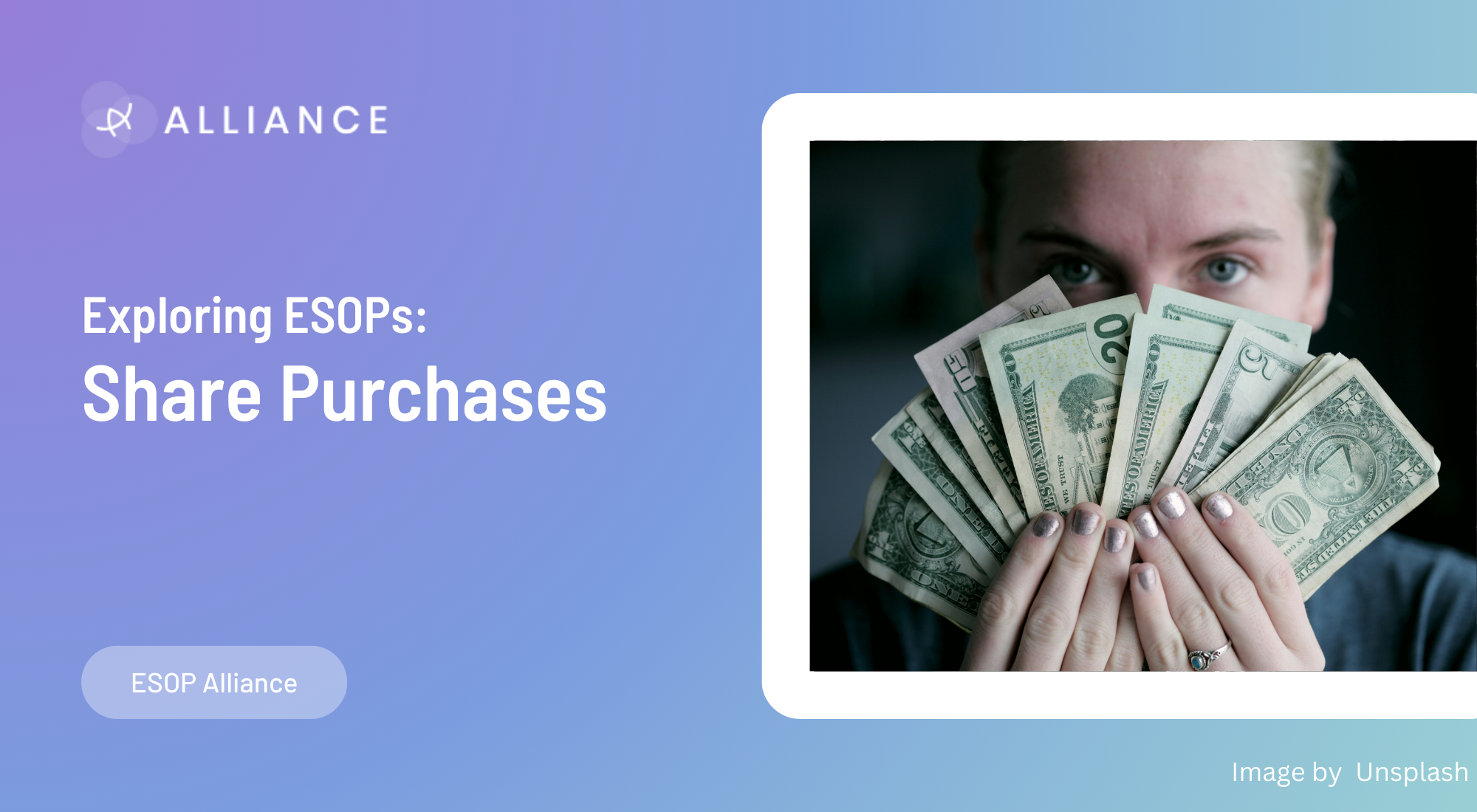Exploring ESOPs: Share Purchases

Understanding ESOPs requires knowing the ways employees can finance their share purchases. This process is crucial, as it impacts the affordability of share acquisition for employees, as well as the overall success of the ESOP.
Below, we explore strategies and considerations for both employees and companies as they start this financial journey.
Establishing Fair Market Value
Before any transaction can occur, the fair market value (FMV) of the shares must be established. This valuation is key to the ESOP share purchase. It sets a benchmark that ensures fairness and compliance in the transaction process.
Options for Paying the Subscription Price
For many employees, coming up with the cash to cover the FMV of their share package might not be possible. Here, creative financing solutions come into play, ensuring that all employees have the opportunity to participate in the ESOP.
- Shareholder Loans: One of the most common strategies is the use of shareholder loans. This arrangement allows employees to pay for their shares over time, rather than requiring upfront cash. The loan terms should include payment schedules and interest rates. They should also reflect arm's length transactions to avoid tax implications.
- Hurdles and Share Package Adjustments: In some cases, the loan amount for the share package is too high for employees. Adding a hurdle can adjust the value and appeal of the share package. This approach lowers the profit expectation. It also lowers the package's value. It does this by forfeiting certain dividends and/or capital gains. However, this strategy requires careful consideration to avoid unintended consequences, such as creating shares with significant internal leverage.
Navigating Tax Implications
Both the structuring of the loan and the implementation of hurdles can have profound tax implications for the employee and the company. The reclassification of income types under anti-abuse laws might change. This poses a risk and highlights the need for careful planning and compliance.
Strategic Considerations for Companies and Employees
For companies, offering flexible financing options like shareholder loans can make ESOP participation easier for employees. This enhances the plan's appeal. For employees, understanding the financial and tax implications of their participation is crucial. Careful planning can maximize the benefits of ESOP ownership while minimizing potential risks.
Conclusion
Financing ESOP share purchases presents a complex but navigable challenge for employees eager to invest in their companies. Through strategic planning and the use of creative financing solutions, employees can overcome financial hurdles, aligning their success with the growth of the company. Both companies and employees must stay alert. They need to watch for the tax and regulatory issues of their chosen strategies. This will ensure a smooth shift to employee ownership that is beneficial to everyone.
